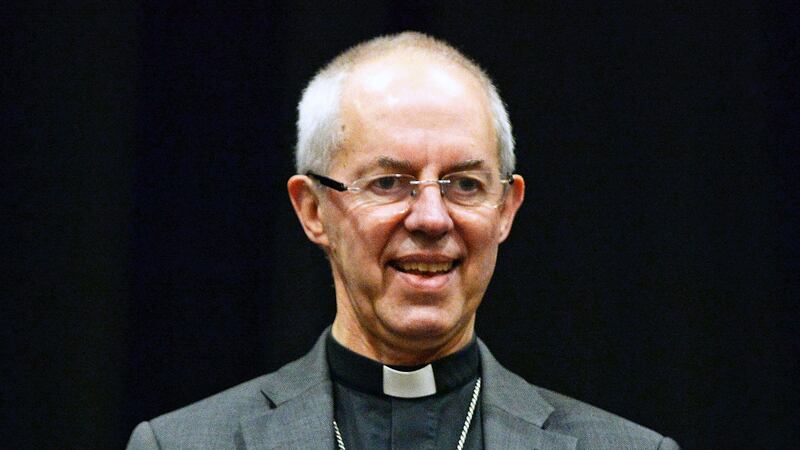It may be the first time an Archbishop of Canterbury has been pushed to deny that he hosted talks about ‘victims’ with no ‘victims’ present. But meetings without fanfare that outrage unionists, like those outed last week (and see Brian Rowan via the E Mallie website for a very different version) have been with us for as long as living memory. Few talks on anything remotely contentious, secret or publicised, have ever happened without unionist objection.
Most of the objections have been to IRA attendees. That worked for many years as deterrent to official, acknowledged contacts, a permanent go-slow policy. Those privileged few invited to 1990s British-Irish Association gatherings - nicknamed ‘Toffs against Terrorism’ by the late lamented Father Denis Faul - will recall the excitement when unionist politicians finally nerved themselves to attend. Fear of Missing Out. Republicans selected for a degree of articulate charm (in particular Mitchel McLaughlin, premature loss to Stormont-frontline Sinn Féin still unexplained) were about to woo a gilded audience, by being able to talk in whole sentences and occasionally smile.
Mostly, the aim was simple; could paramilitaries be wooed away from violence? Venues varied from foreign to domestic. Irish and German clerics organised a 1988 meeting in Duisburg, Germany, attended among others by then DUP deputy leader Peter Robinson and the late Father Alec Reid. Ed Moloney’s ‘Secret History of the IRA’ is a chronicle of the ‘Peace Process’ that Gerry Adams supporters hotly reject, perhaps excepting Fr Reid’s billing as Adams’s unofficial representative. Nor that ‘his presence kept the unionists in terror of discovery for months afterwards.’
Nobody who pays attention to the shifts of politicians and politics here would quarrel with the context: ‘At that time, talking to Sinn Féin was probably the most unforgivable sin in the book, and even being in the same room as a surrogate figure like Reid would have caused an outcry.’
Protestant clerics who organise or abet this sort of thing have always taken far more risks than the Catholic priests involved. These could be pretty sure of thanks from their own congregations, with a bonus in the past of real affection. Whereas the Reverend Ralph Baxter, who died on November 27, spent much of his long life in Manitoba because the UDA threatened to kill him, after a Gardaí Special Branch raid revealed 1974 talks with the IRA in Feakle, County Clare.
The IRA group scattered. When the branch burst in a dallying Sinn Féin president Ruairí Ó Bradaigh told them mischievously that ‘the men you are looking for are upstairs’. Branchmen stormed a room full of Protestant clergy, some English. There with the blessing, Baxter told a Spotlight programme last year, of Labour prime minister Harold Wilson. Flatly denied at the time.
As a British government yet again holds off a public inquiry into collusion, Barney Rowan’s reflections fill in some blanks. Chiefly, that this government in April tore up a 2015 agreement on ‘legacy killings’ with proposals that instead would deter further investigation, prosecutions, possibly further excavation of collusion and records of testimonies.
The Lambeth Palace meetings, one scheduled for this week, have been hearing alternative approaches drawn from lengthy academic work. Involving, as Rowan points out, ‘the victims’ commission, the PSNI, the British Army, loyalist and republican representatives, the NIO and the Department of Foreign Affairs in Dublin.’
Contacts, in many directions, found their way like water even through the worst of times. A recent death took Bob Fisk, who as young (London) Times reporter here competed with the Guardian to balk the spin of the Northern Ireland Office and the British Army. One of Fisk’s contests was to be first to reveal dealings between the Official IRA and the UVF.
And in the decades-long saga of IRA contact with the British machine, wasn’t there even a Christmas present from a veteran MI6 contact to Martin McGuinness? Now there was a Secret Santa.








